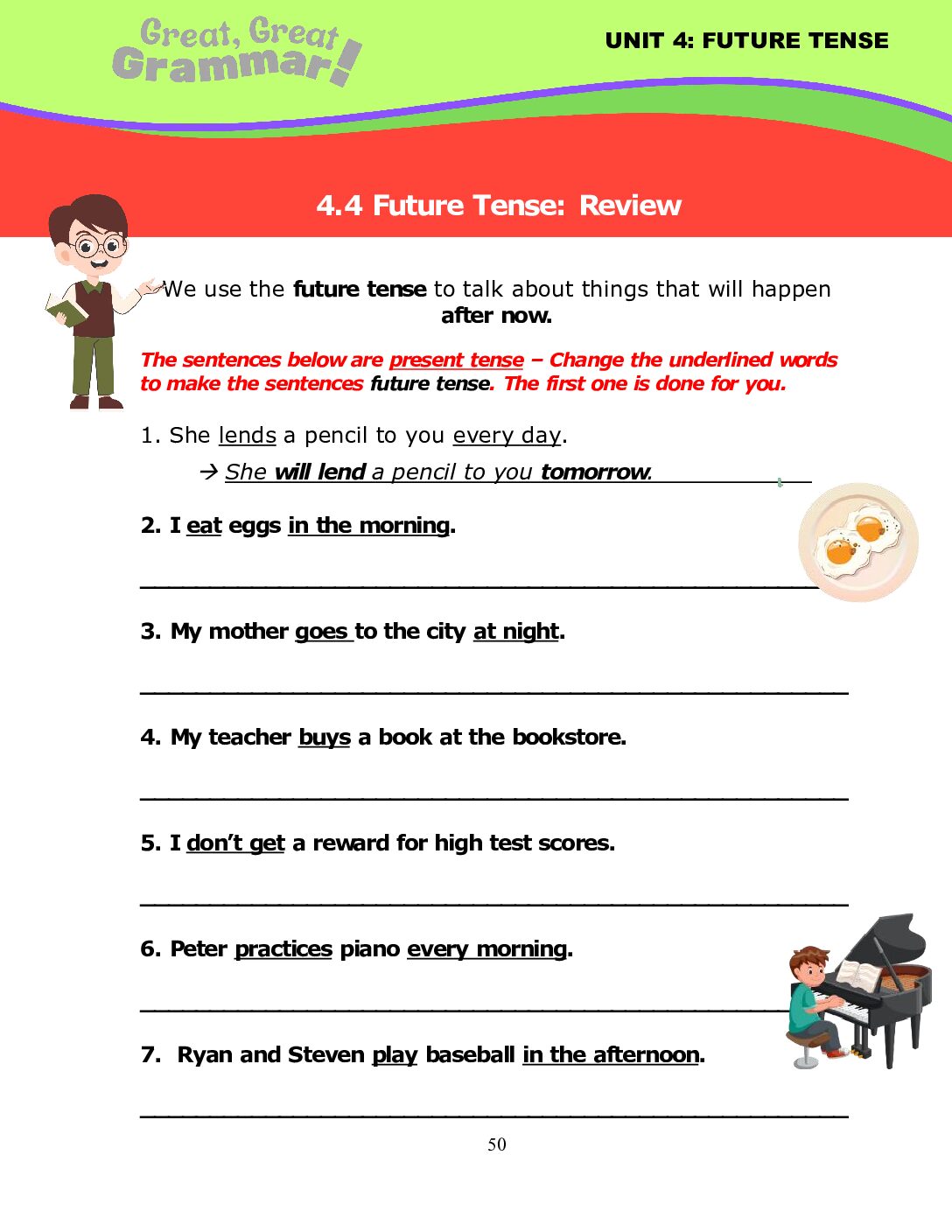In this ESL grammar lesson, students practice rewriting present tense sentences in the future tense, changing the underlined words to be consistent with the future tense.
ESL Grammar: Common Time Expressions in the Future Tense
Time expressions are essential for indicating when an action will take place. Here are some of the most common ones used with the future tense:
- Tomorrow: I will visit my grandmother tomorrow.
- Next week/month/year: We are going to start a new project next month.
- In [a specific time period]: They will arrive in two hours.
- Soon: She is going to call you soon.
- Later: He will finish the report later.
ESL Grammar: How to Use Time Expressions with Future Tense
To talk about future events, we combine time expressions with “will” or “going to.” Here are some examples:
- I will see you next week.
- She is going to meet her friends in an hour.
- They will start the meeting soon.
- We are going to have lunch later.
The English grammar lesson below presents several present tense sentences that students must change to the future tense by changing the verb and the time expressions. Our series of ESL grammar lessons on subjects and verbs introduce these concepts and reinforce them through helpful and instructive exercises.
This lesson is available for free download, and you can download many more English grammar lessons focusing on basic English tenses (present tense, present continuous tense, past tense, future tense) in our comprehensive, beginner-level ESL grammar textbook Great, Great Grammar! (Book 2: Tenses).

